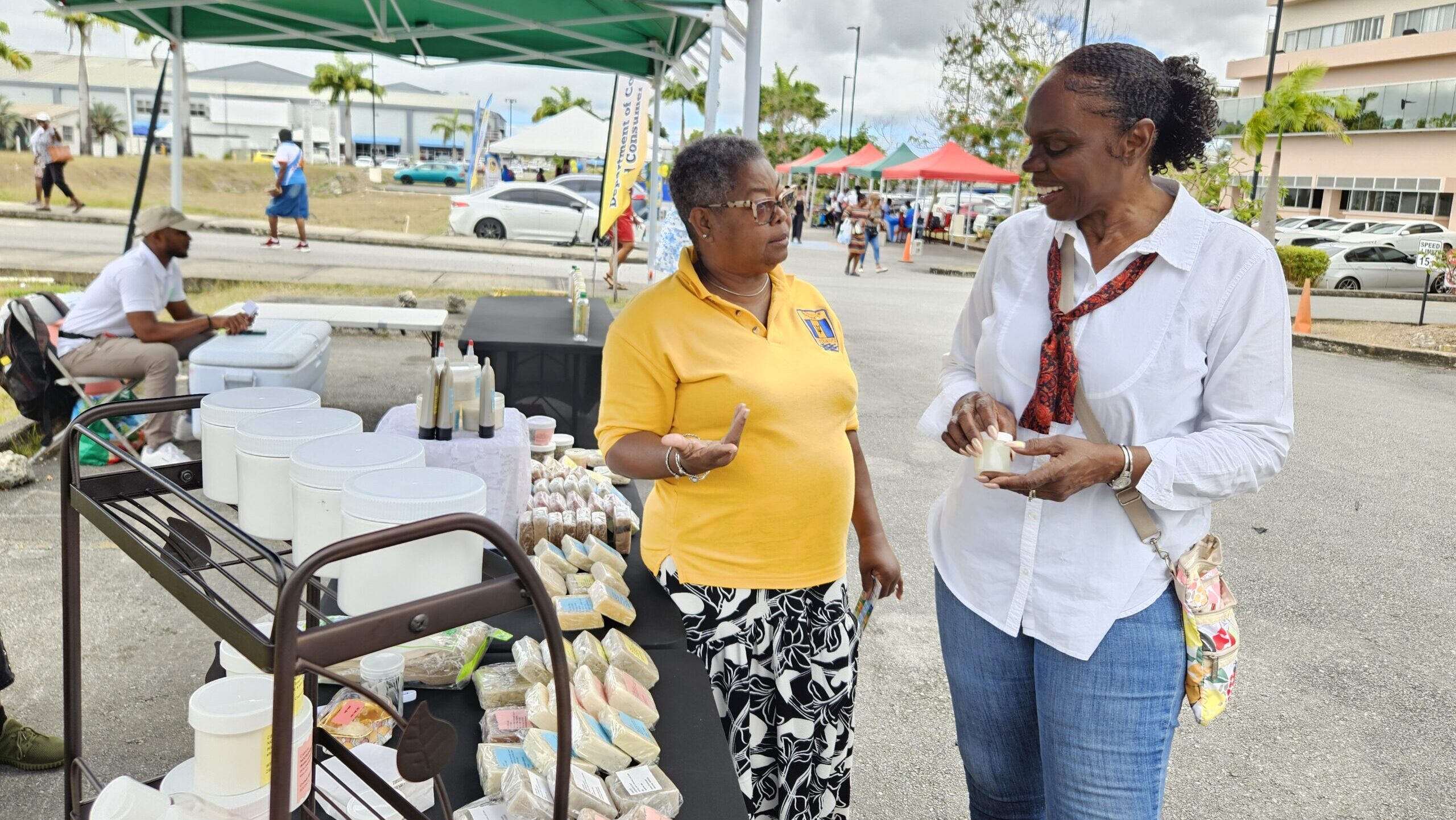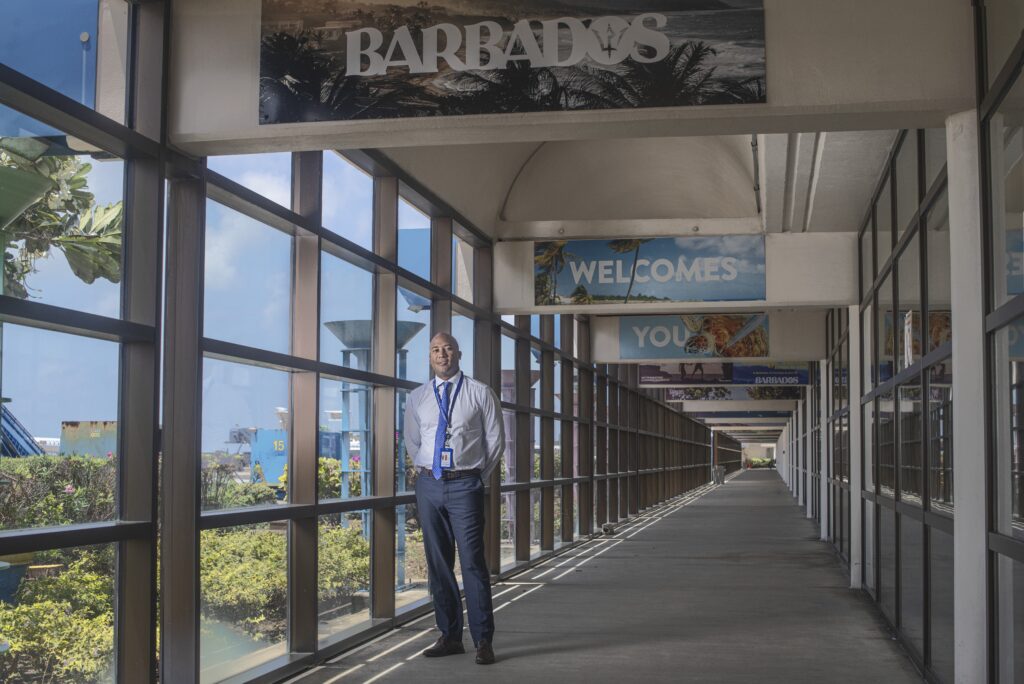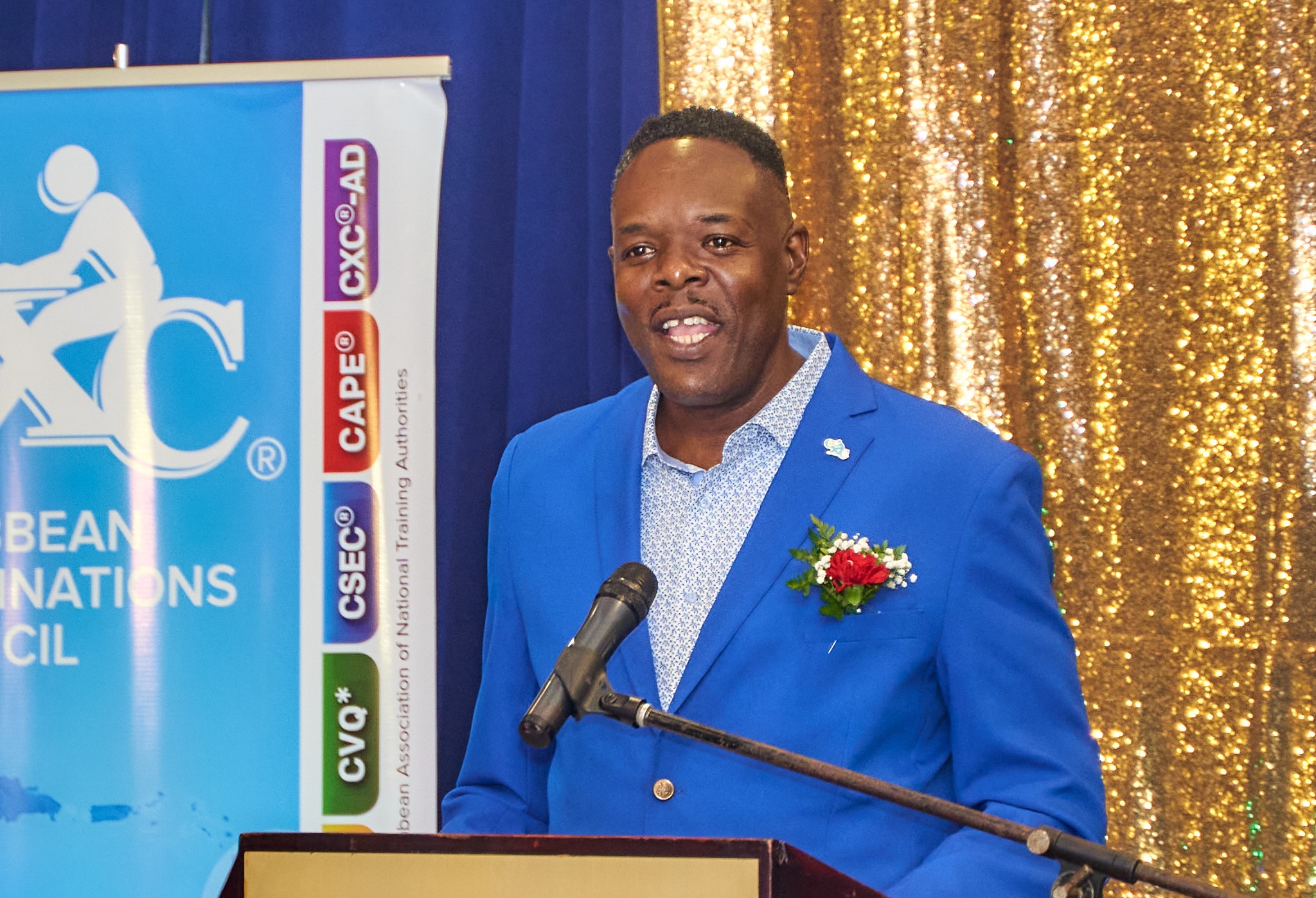Barbadians Urged to Understand Consumer Rights and Responsibilities during World Consumer Rights Week

March 15, 2025
Barbadians were educated on consumer rights and responsibilities during World Consumer Rights Week. Government agencies and businesses aimed to inform the public about consumer protection laws and sustainable living practices.
The bodies responsible for consumer rights want Barbadians to learn the importance of their rights and responsibilities as part of World Consumer Rights Week, officials have said.
This week, government agencies and businesses engaged with the public in various ways to educate them on consumer protection laws and encourage them to transition to sustainable living.
Margaret Campbell Leslie, deputy director of the Department of Commerce and Consumer Affairs, said the initiative is meant to empower Barbadians.
“We want to share all that we know with consumers so that they can make informed decisions,” Leslie stated.
She explained the importance of this week: “To get consumers on board, we want them to feel comfortable that when they have a problem, they know it’s a problem to begin with, and then that they can call us. Oftentimes, when I speak, some people say: ‘Oh, I could have come to you, or I could have gone to…’ They don’t know. So we want to inform them as to what their rights are, and how we can help them.”
Representatives from the Barbados National Standards Institute (BNSI), the Office of Public Counsel (OPC), the Fair Trading Commission (FTC), and the DCCA provided information on consumer rights and protections.
Julia Regis, officer in charge of the FTC’s Consumer Protection Division, charged consumers with being responsible and learning the laws on consumer protection: “There are certain things in the legislation that you need to be able to know and understand. We have the arm of the Fair Trading Commission, which deals with issues prior to making a purchase. So, anything before you pay over your money, those are issues we look at. Then we have the Office of Public Counsel, which looks at issues after your purchase, up to $10 000, and then we have the Department of Commerce and Consumer Affairs, and they look at licensing and a myriad of things they look at. So, when you look at it, we are all consumer protection bodies, and we are all here working collaboratively to get this information out.”
Regis advised consumers to be careful when signing contracts. She noted that oftentimes people do not know their rights and who to go to when they have a concern. “You also have a responsibility, and one of those rights is to be informed, and one of the responsibilities you have is to ask questions. Read your contracts before you sign off on them. You have a responsibility, because when your signature goes on there, you are saying to that business: ‘I understand what you have given me, and I’ve signed off,'” she said.
“We want you to read those contracts. We want you to know if there’s any challenge, if there’s any uncertainty, you can reach out to us, and we will be able to guide you or give you the correct information. We want you to make informed choices,” she added.
She also advised consumers on the proper steps to take when disputes arise with their purchases.
“If you’re not able to speak to somebody in authority, then your next course would be to write a letter. We always want you to put it in writing, and in that writing, you’re going to give them a detailed description of what took place, and you’re also telling them how you want the issue to be resolved, and you’re going to give them at least 14 days to respond. Along with that, you need to have documentation to substantiate your claim. So, if it is an invoice, you can copy the invoice and include that too.”
Regis added that if no resolution is reached, the consumer can escalate the complaint to a consumer protection agency: “If there’s no resolution or it is not to your satisfaction, then you can come to the commission. Again, with that documentation. And you have a complete form where you give us the authorisation to investigate on your behalf. And we will do that for you.”
Leslie highlighted the importance of reading labels: “I tell people to read the labels. Don’t just go and see something that looks very pretty and just pick it up.”
Friday’s consumer rights community fair featured over 15 businesses that mainly produce natural products. This year’s theme is A Just Transition to Sustainable Lifestyles, focusing on reducing consumers’ carbon footprint, which causes climate change.
“We want each person to reduce the amount of greenhouse gases they contribute to the atmosphere, causing little climate change,” stated Leslie.
Leslie also encouraged engaging children early on to instil sustainable practices.
“You see these little ones; we gotta start with them really early because when we go to school, market… We need to really get the children involved in this, in this arm of our endeavour to protect the consumers.” louriannegraham@barbadostoday.bb


